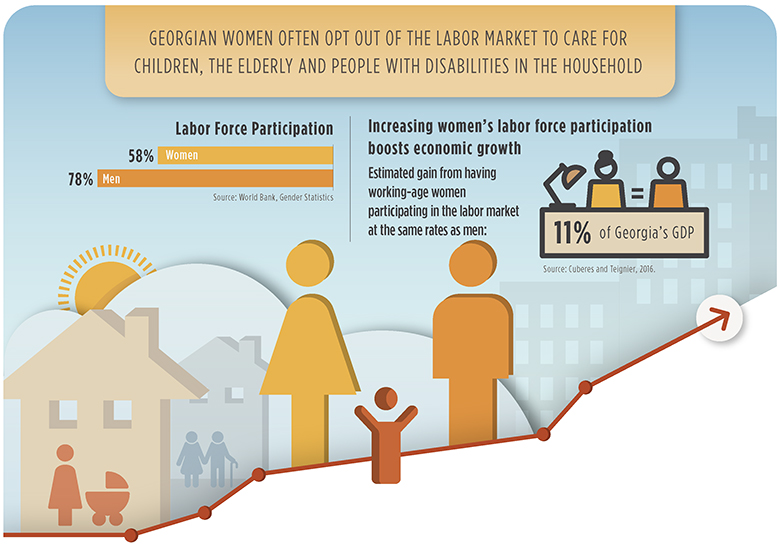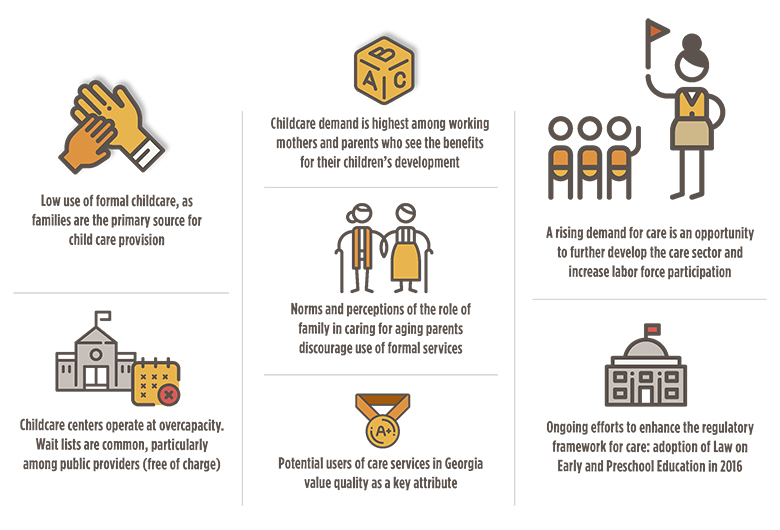About the Study
This study examines the provision of formal care services in Georgia, with a focus on availability, quality, and price. It seeks to collect new evidence and document practices, norms and behaviors, focusing on the role of women as caregivers and care providers, and is part of a broader initiative to assess childcare and eldercare services in Eastern Europe and Central Asia.
Four overall lessons learned from the study:
- Demand for formal childcare services comes predominantly from parents who see the benefits for their childen's development, and for working (or willing to work) mothers who need support. Although social norms strongly highlight the role of women as caregivers, there is scope for policy to increase the capacity, quality, and availability of childcare and early education.
- Childcare facilities in Georgia often operate beyond their capacity, resulting in an excessive number of children being cared for in limited physical spaces. Waiting lists are common, particularly among public providers that operate without charging a fee.
- Social norms and perceptions of the role of the family in caring for aging parents discourage the use of formal eldercare, particularly residential options such as boarding houses. The use of daycare centers and home-based options - if available and affordable - would be more compatible with the prevailing standards of care for the elderly.
- Quality is important for potential users of formal care services. The main challenges are related to child-staff ratios and staff qualifications in childcare, and human resources contraints in eldercare. Despite having access to a public system that provides free childcare services, quality concerns mean that many Georgian families opt to pay for care.
In Georgia, policies that support job creation need to be accompanied by policies that address care needs. A growing and continuously developed care system will not only provide solutions to informal caregivers, but also promote job creation in the care industry.

